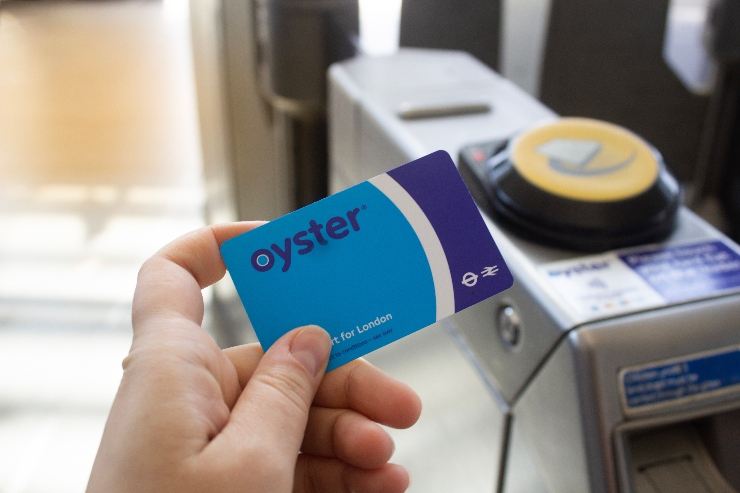In management, as in other disciplines, new technologies sometimes force us to reconsider the conclusions of established theoretical models. Frédéric Fréry writes that this was the case for digital platforms, which transaction cost theory had shown were intrinsically less efficient than integrated companies with their own assets and employees. Other advances, such as generative AI, may have the same kind of disruptive impact.
Research is sometimes ahead of practice. As far back as the early 1990s – some 15 years before Airbnb (2008) and Uber (2009) arrived on the scene – some scientific studies had already theorised about the emergence of digital platforms linking independent service providers with end customers. However, this hypothesis came up against a practical impossibility: transaction cost theory had shown that these digital platforms were intrinsically less efficient than integrated companies with their own assets and employees. Digital platforms were therefore a potential curiosity, but certainly not an organisational reality.
The unavoidable theory of transaction costs
The transaction cost theory stems from Ronald Coase’s insights, which were largely developed by the work of Oliver Williamson, for which both won the Nobel Prize in Economics (in 1991 and 2009 respectively). This theory provides an answer to this fundamental question: “Why are there companies rather than a fragmented market?” It justifies the existence of integrated companies on the grounds that markets involve specific costs, known as transaction costs: each time you want to do something on a market, you have to find financial backers, hire equipment and draw up contracts with service providers. The main advantage of companies is that these transaction costs only have to be paid once: financial backers, equipment and service providers are turned into long-term shareholders, investments and employees, respectively. As a result, companies are much more efficient when it comes to recurring activities.
There is another dimension to this. According to the work of George Akerlof, who was also awarded the Nobel Prize in Economics in 2001, one-off transactions between individuals who do not know each other engender mutual distrust that encourages cheating by both parties.
Overall, digital platforms have traditionally been reduced to nothing more than a theoretical curiosity: not only would no one agree, a priori, to host strangers in their home or to be driven around by a non-certified driver, but these approaches were also structurally less efficient than using integrated companies. Platforms therefore seemed to have no future. But all that changed profoundly in the 2000s, as a result of a series of technological developments.
Technology turns theory on its head
Thanks to the sea container and the internet, followed by the development of the web, smartphones and finally social media, it has become very inexpensive to coordinate independent service providers, find individual customers and set up digital platforms that make it easy to connect the former with the latter. In fact, the same arguments that led us to favour integrated companies can now be reversed. It was this reversal, which moved from a purely theoretical hypothesis in the 1990s to a practical reality a decade or so later, that legitimised the emergence of digital platforms such as Airbnb and Uber.
At the same time, we must pay tribute to eBay, which came up with the idea of asking its users, both buyers and sellers, to rate each other by awarding stars. This simple idea, scaled up massively by the spread of the web and then smartphones, and subsequently adopted by almost all digital platforms, circumvented Akerlof’s conclusion about the opportunism of transactions between strangers. Without smartphones and mutual evaluation, trust between strangers could never have been established and these business models could never have existed.
By drastically reducing transaction costs and providing a way to establish trust between strangers, a series of technological developments has led to a rebuttal of the conclusions of three Economics Nobel Prize winners.
How generative AI impacts other theories
Other management theories could see their conclusions refuted by technological developments, in particular generative artificial intelligences (AI) providers such as ChatGPT, Bard, Bloom and Copilot. There are three possible consequences:
One. This technology could turn the mythical Homo economicus into a reality where humans are capable of making decisions to maximise their utility in any situation. This would mean challenging much of behavioural finance or economics, while giving new operational effectiveness to conventional models. Generative AI is likely to give every investor, every customer and every manager the ability to consistently make optimal decisions in real life. If this is the case, it could invert a whole area of contemporary research.
Two. By the same token, because of how they work (generating the most likely text in a given context from a pre-established corpus), generative AI could be a tenfold reflection of bounded rationality, and therefore provide a much better understanding of the limits of human rationality. This could boost interest in finance and behavioural economics, but also in the study of consumer behaviour in marketing or individual and collective decision-making in management.
Three. We might even consider that generative AI is a good analogy for the way human thought works. Some psychological and sociological studies, along with research into cognitive biases, suggest that human thinking often follows an automatic, preconditioned path. Like ChatGPT, humans have a natural tendency to complete sentences with the words that seem most likely to fit the context. Generative AI could therefore provide a better understanding of how human intelligence works, which would undoubtedly have an impact on a number of established research outcomes in management.
For the moment, there is no way of predicting the impact of these technologies on management models, but it is likely to be significant. This re-reading of old theories in the light of new tools reminds us that models are only valid in relation to a certain state of knowledge. As the biologist Jean Rostand mischievously put it: “Theories come and go, but the frog remains.”
- This blog post is based on Digital generative AI platforms: when technology disrupts management models, part of ESCP Business School’s ‘new techs and the future of individuals, organisations, and society’ impact paper series..
- The post represents the views of its authors, not the position of LSE Business Review or the London School of Economics.
- Featured image provided by Shutterstock
- When you leave a comment, you’re agreeing to our Comment Policy.






Même avec un smartphone Marx ne l’aurait pas imaginé.
Le succès actuel des plateformes numériques telles qu’Airbnb, Uber ou Deliveroo remet il en cause la théorie des coûts de transaction ? Frédéric Fréry dans son article pose la question et y répond par l’affirmative.
Leurs succès actuels viennent ils contredire les enseignements de cette théorie qui montraient que ces plateformes étaient « intrinsèquement moins efficaces que les entreprises intégrées disposant de leurs propres actifs et employés. Les plateformes numériques étaient donc une curiosité potentielle, mais certainement pas une réalité organisationnelle. ». La question n’est pas anodine, car comme le rappelle Frédéric Fréry, car alors ces succès viendraient contredire les travaux de trois prix Nobel d’économie (1991, 2001, 2009).
L’analyse proposée dans cet article est stimulante et argumentée. Elle ne manque, toutefois, pas d’interroger sur sa pertinence.
Il est vrai que peu de gens auraient parié sur la réussite de telles plateformes tant elles faisaient figure d’impensables il y a moins de deux décennies. Ces plateformes notamment par l’absence de la dimension « confiance » indispensables à toute transaction entre des individus qui ne se connaissent pas semblaient bien improbable… Jusqu’à ce que Ebay ait le génie d’inventer le « like » comme nous le rappelle Frédéric Fréry.
De fait, il peut être intéressant de savoir si tant la question posée que la réponse qui lui est apportée sont pertinentes.
Et cela en se posant la question toute simple de savoir si des plateformes telles que par exemple Airbnb ou Uber sont des « plateformes numériques reliant les fournisseurs de services indépendants aux clients finaux. » et de savoir tout particulièrement si ces fournisseurs sont-ils bien « indépendants » ?
Ils sont de fait liés à la plateforme par un lien qui, par exemple, dans le cas d’Uber a été reconnu par des tribunaux comme un lien de subordination avec une requalification du contrat en contrat de travail.
De même, il convient de s’interroger sur la nature de ces plateformes en tant qu’entreprise et sur la nature de leurs clients réels.
Ces plateformes sont bien des entreprises et la théorie des coûts de transaction y joue comme pour toute entreprise. Sauf erreur de ma part, ces entreprises, en respect de la théorie du coût de transaction ont leurs propres équipes, leurs propres locaux, leurs propres systèmes, leurs propres et si précieuses ressources numériques.
Aussi, loin de remettre en cause la théorie du coût des transactions, ces plateformes la met en œuvre pour leur propre entreprise.
Et si le client n’était pas celui auquel on pense ?
Les clients réels de ces plateformes numériques ne sont pas les clients « finaux » mais bien les détenteurs de logements dans le cas d’Airbnb ou de voiture dans le cas d’Uber ou de scooter ou de vélo dans le cas d’Uber Eats ou de Deliveroo par exemple. Et c’est là qu’est le génie du modèle.
Le modèle du Capitalisme 2.0. que Marx n’aurait même pas pu imaginer.
Un modèle auquel, même s’il avait disposé d’un smartphone, Marx n’aurait pu imaginer.
Ce que les technologies actuelles ont rendu possible ce n’est pas la réfutation de la théorie des coûts de transaction mais bien l’utilisation à son profit par une entreprise (en l’occurrence une plateforme numérique) d’un capital qu’elle ne détient pas (le capital de ses clients réels) et la génération d’un chiffre d’affaires à hauteur des commissions perçues sur la fourniture du service par ses clients aux clients finaux (souvent de l’ordre de 20%).
La problématique n’est plus ici une question de coût de la transaction. Nous sommes davantage dans problématique d’une économie de droit de péage.
Une économie de droit de péage 2.0. ou le « rançonnage » numérique.
En se positionnant entre le propriétaire d’un bien et son client final et sur le chemin conduisant l’un à l’autre, ces plateformes s’apparentent historiquement aux villes bordant les fleuves tels la Loire et qui tirèrent leur fortune du péage exigé des bateaux transitant devant leurs remparts.
L’utilisation obligée par ces navires de ces cours d’eau est une préfiguration du (quasi) lien de subordination qui lie aujourd’hui les clients réels des plateformes numériques à leurs pourvoyeurs de trafic.
Quel chemin de fer ou conteneur du futur ruineront les plateformes numériques d’aujourd’hui ?
Le fait que le chemin de fer puis l’avion soient venu remettre en cause historiquement ce passage obligé et aient ruiné ce modèle doit plus interroger sur la pérennité du modèle économique des plateformes numériques que sur la remise en cause de la théorie du coût des transactions.
Alors oui, effectivement, la technologie peut renverser moins une théorie qu’un modèle. A quand le chemin de fer 2.0. qui ruinera le « rançonnage » des plateformes numériques actuelles ?
Un grand et très sincère merci, comme toujours, à Frédéric Fréry pour ses travaux et contributions qui sont autant d’opportunes invitations à la réflexion.
Bien cordialement,
Louis.